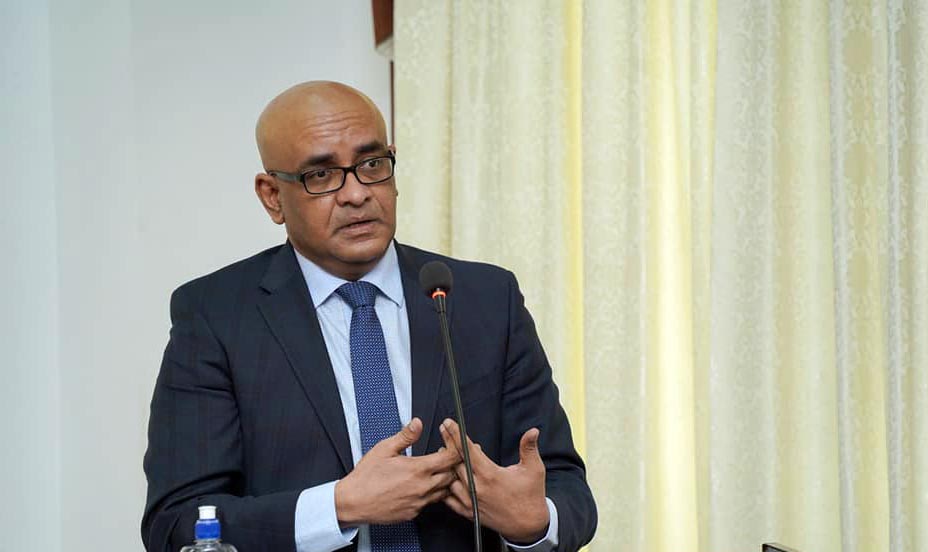Guyana, South America’s newest oil producer, is poised for massive economic take-off with total fiscal revenues from developing just its first two oilfields projected to exceed US$20 billion, dwarfing its 2018 GDP of US$4 billion. But in addition to ensuring that an effective regulatory framework and policies that would help the country avert the Dutch disease are in place, there are other existential threats to its prosperity.
“Well, its climate to a large extent, climate change,” Vice President, Dr. Bharrat Jagdeo told attendees at a discussion organised by the Baker Institute in Houston, Texas, on Tuesday. “We had a flood in 2005 that wiped out the equivalent of 60% of GDP and we just had one recently and we haven’t even done the assessment.”
Guyana’s low-lying coastal plains along the Atlantic Ocean are highly populated and generally lie below sea level. At least 40% of the population of over three-quarters of a million people live in Region 4, which includes the capital city Georgetown. Over 1 m of rain fell in January 2005, nearly 5 times the normal amount, with 65 cm in just 5 days (an estimated return period of 1000 years). The extreme rainfall caused widespread flooding which affected almost half of Guyana’s population.
Dr. Jagdeo said an assessment of the most recent floods this year has not yet been done but the United Nations Economic Commission for Latin America and the Caribbean (ECLAC) is lending assistance. “But it’s major across the country and it’s systemic – that is climate events, weather related events is one of the major issues.”
He said there are also other threats to the country’s development, pointing to a long-standing border claim by Venezuela to territory west of Guyana’s Essequibo River which was settled in an 1899 arbitral award. Venezuela had for years accepted where the boundaries lie between the two countries but started to question the validity of the award several decades later.
Guyana/Venezuela border controversy
“I see now there are other threats too. Venezuela has had its eyes on our territory for a very long time and had made this spurious claim. We’re before the ICJ and hopefully that will resolve there, but thankfully we’ve had peace on our borders,” the Vice President said.
Transnational crime, including human and drug trafficking were also highlighted by Dr. Jagdeo as threats that could undermine the country’s progress.
He explained that Guyana has been experiencing issues with human trafficking where persons were moving from Haiti into Brazil, through Guyana.
“We recently had to put a stop to that,” he said. “So, these are threats that are there constantly that when you’re in government you have to tackle it all the time, but I think overall we can mitigate those threats and ensure that our country keeps accumulating wealth unlike some countries, and our history when for three decades we decumulated wealth.”
In addition to its oil development, Guyana’s prospects remain bright. The World Bank has said that macroeconomic projections suggest that post-2020, the Guyanese nonoil economy can expand at an average rate of around 4.5 percent per year and absorb a nominal fiscal expansion of about 9-10 percent each year starting in 2021. Such an expansion would boost public spending from about 33 percent of nonoil GDP in 2019 to 37 percent in 2030.




